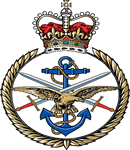Commemorated: | |||
| 1. Book: | The (1921) Masonic Roll of Honour 1914-1918 | Pg.136 | |
| 2. Memorial: | The (1940) Scroll - WW1 Roll of Honour | 37A GQS | |
| 3. Grave: | Amara War Cemetery | I.C.29. | |
Awards & Titles: | |||
Family :
Frederick William Thomas was the son of Major-General Thomas.Education & Career :
Thomas entered Victoria College, Jersey in 1880, at the age of ten.
Service Life:
Campaigns:
- The First World War 1914-1918, World-wide.
| Unit / Ship / Est.: Indian Army |
| Action : Mesopotamia |
At the outbreak of war the British, together with Indian troops, resolved to protect oil supply in the region by occupying the area around Basra at Abadan. This evolved into a series of campaigns towards Baghdad against the Turkish forces as Mesopotamia (modern Iraq) was part of the Ottoman Empire. Meetings in late 1914 and into 1915 led the Viceroy and Indian government at Simla to reconsider the limited involvement of troops and they decided to order further advances with a view to securing the Shatt-al-Hai, a canal connecting the Tigris and Euphrates river and potentially capturing Baghdad. The British government disagreed and wished to conserve forces for the Western front. The Viceroy was given permission to act as it wished, but told in no uncertain terms that no reinforcements should be expected.
The initial success experienced by the British and Indian forces quickly disintegrated in the face of Ottoman opposition. The Siege of Kut-Al-Amara began on 7th December with the besieging of an 8,000 strong British-Indian garrison in the town of Kut, 100 miles south of Baghdad, by the Ottoman Army. These campaigns produced few tactical benefits, indeed the catastrophic defeat at Kut in 1916 was a major setback. Badhdad was eventually taken in March 1917.
The conditions in Mesopotamia were dreadful. The climate, sickness and disease produced large losses in addition to battle casualties. About as many men died of disease as were killed in action. The Mesopotamia front was part of a strategy hoping for success at lower cost than the Western Front but no decisive victory was achieved.
Served at the Second Battle of Neuve Chapelle where he was buried by a shell on the La Bassee road May 1915 and was six months in Bhopal.
Re-joined as the CO of the Battalion in Mesopotamia.
Detail :
Wounded in the action of the Wadi 13 January and died of wounds 26 January 1916.
An entry in a book called “A List of Inscriptions on Tombs and Monuments in Rajputana and Central India with biographical notes” by O. F. Crofton quotes an inscription in Sehore Church:
"F. W. Thomas, 44th Merwaris, joined Bn. from 27th Dec. 1914 as 2nd in Command. Second Battle of Neuve Chapelle. Buried by a shell on the La Bassee road May 1915 and was six months in Bhopal. Re-joined in Mesopotamia in command of Bn. Wounded in the action of the Wadi 13th Jan. and died of wounds 26th Jan. 1916."
See more at: "http://www.historyalive.je/2017/01/26/lieutenant-colonel-frederick-william-thomas/" target="_blank" History Alive!
THOMAS Frederick William of 4 St. George's-avenue Ealing Middlesex lieutenant-colonel 9th Bhopal Infantry Indian Army died 26 January in Mesopotamia Administration London 28 August to Margaret Stephana Thomas widow. Effects £69 10s.
Masonic :
| Type | Lodge Name and No. | Province/District : |
|---|---|---|
| Mother : | Friendship No. 2307 E.C. | Bombay |
Initiated | Passed | Raised |
17th October 1903 | 19th December 1903 | 16th January 1904 |
Frederick is listed against Friendship Lodge No. 2307 in the book The Masonic Roll of Honour (1921). He was initiated whilst as a 34 year old Captain in Ajmere, Bombay in 1903 and in the contribution record of the lodge reported "Killed 2/16."
Past Master
Source :
The project globally acknowledges the following as sources of information for research across the whole database:
- The Commonwealth War Graves Commission
- The (UK) National Archives
- Ancestry.co.uk - Genealogy, Family Trees & Family History online
- ugle.org.uk - The records of the United Grand Lodge of England including the Library and Museum of Freemasonry
Additional Source:
- Founder Researchers : Paul Masters & Mike McCarthy
- Researcher : Bruce Littley

